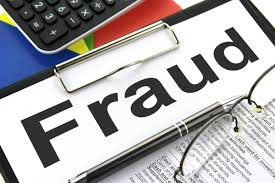It’s estimated that fraud cost the UK almost £190 billion in 2019, with losses increasing by 57% in the past decade. The cost of fraud is expected to continue to rise, but could you be committing fraud without even realising?
With recent research revealing that one in five adults under the age of 35 has committed at least one form of fraud, anti-money laundering service, SmartSearch, reveals five ways you could be committing fraud without even knowing it:
1. Fronting
Fronting is where a car owner intentionally lies about who the main driver of the vehicle is in order to reduce their car insurance quote, which is now the most common type of consumer fraud in the UK.
Recent statistics show that half of the UK population said fronting was an acceptable practice, however, not only could it result in a criminal record, but it could also invalidate the insurance policy.
It is also important to remember if you’re involved in an accident, while insurance companies are legally obliged to pay out to third parties involved in an accident, they could refuse to cover any costs, damage or injury claims associated with those involved in the fronting arrangement.
2. Deshopping
Research has shown that one in every 20 adults in the UK has engaged in deshopping. This activity is where buyers purchase items of clothing with the intention of wearing the products before returning them for a full refund.
Deshopping can be considered as attempting to gain ‘pecuniary advantage by deception’, which is an offence under The Theft Act, 1968 (c.60).
3. Money Muling
Some see being a money mule as a stress-free, get rich quick scheme, however, the consequences can be devastating. The act of ‘money muling’ is where a bank account holder allows criminals to use their bank account, in order to make the funds more difficult to trace, in exchange for a share of the money.
This method is a form of money laundering that can result in a prison sentence of up to 14 years. Former money mules will find it difficult to open new bank accounts and it will be flagged on all future accounts, including loans and credit cards.
4. Friendly Fraud
Friendly fraud, also known as chargeback fraud, happens when consumers make an online purchase and then call their card issuer to request a refund, citing fraud as the reason. The credit card provider refunds the money and the consumer gets to keep the goods, leaving the seller out of pocket. In order to avoid committing friendly fraud, try to remember what purchases you have used your card for.
The challenge with friendly fraud is that there is no way to verify the authenticity of the actual transaction, which is in fact legitimate.
5. Opportunistic Fraud
Opportunistic fraud is a type of insurance fraud, however, unlike ‘crash for cash’ or ‘ghost broking’ schemes, opportunistic fraud isn’t premeditated and doesn’t involve a huge amount of planning.
It occurs when someone is in a genuine incident, but they then exaggerate the damage in order to get pre-existing damage fixed in the repair process. While most people see this as ‘harmless’, the dishonest action impacts the cost of insurance premiums, making them higher for everyone.
John Dobson, CEO at SmartSearch, comments: “It is surprising how many UK adults have committed fraud without knowing, or think that some forms of fraud are acceptable. The impact these crimes have on the economy and UK businesses is extraordinary, and it should be at the forefront of your mind if you’re about to undertake any of the activities listed. We hope that by explaining these types of fraud, Brits can become more diligent on the types of fraud and their implications.”
To find out more visit: https://www.smartsearch.com/resources/blog/biggest-fraud-and-money-laundering-cases










